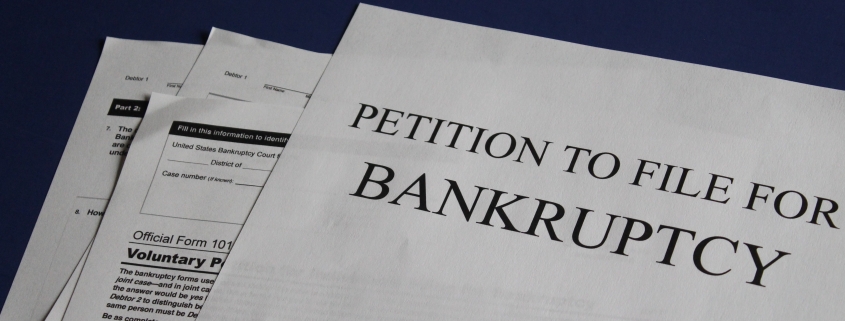Advantages to Working With a Bankruptcy Attorney
Filing a petition for bankruptcy triggers a highly regulated legal and administrative process. If you have reached a point in your life where your debts are causing you to consider filing, you may be hesitant to incur an additional expense in the form of attorney fees. While it is possible to file a petition on your own, there are many reasons to consider working with an experienced bankruptcy attorney. First and foremost, the statistics are clear that individuals filing on their own behalf are much less likely to succeed than those who work with counsel. Here are some additional advantages.
- Assessing Whether You Really Need to File
While it addresses a serious problem, bankruptcy is an extreme solution. When debts have piled up, and it seems like there are no other options, consultation with an experienced attorney can help assess the situation. There are debt relief strategies that might be a better alternative, particularly if you have valuable assets, like your home, that might be in jeopardy in a bankruptcy. An attorney can review the big picture and advise on the best path forward. Then counsel can help implement a debt restructuring plan short of bankruptcy or proceed with bankruptcy. Conferring with an attorney about managing debts can help protect assets.
- Which Type of Bankruptcy?
Individual debtors can choose between two types of bankruptcy petitions: Chapter 7 and Chapter 13. Chapter 7 is a liquidation of non-exempt assets that wipes out pre-petition debts and typically takes three to four months. Chapter 13 is a restructuring of debts that allows the debtor to keep assets but requires a plan that can take three to five years to achieve the resolution of pre-petition debts. Not only are there specific rules about which Chapter is available to a debtor, there are important distinctions between the two that bear careful consideration before filing. In evaluating the assets and debts, there are issues of asset exemptions, unavoidable debts, timing, income, and other complexities that make it confusing to determine which way to go. Before proceeding with a bankruptcy, a meeting with an attorney can help sort out which Chapter is appropriate.
- Protecting Assets
The goal of bankruptcy is to wipe the debtor’s slate clean of certain debts. But to do this, all of a debtor’s assets are scrutinized to determine whether they have to be liquidated to pay something to creditors. Even in a Chapter 13, this presents a potential loss of something of value to the debtor. There are specific exemptions, strategic approaches, and acceptable plans that a bankruptcy attorney can help the petitioner identify and use to protect assets. For example, an attorney can help a debtor find alternatives to borrowing from a retirement account to pay debts when these accounts would be exempt in bankruptcy.
- Acting as an Advocate
The administration of a bankruptcy case seems relatively straightforward. A petitioner has to submit specific information, meet certain deadlines, and, depending on the Chapter, proceed with required meetings and hearings. Negotiating these aspects can be done on one’s own, but having counsel can smooth the way. In particular, an experienced bankruptcy attorney will have established working relationships with the United States Trustee assigned to the bankruptcy case and help avoid conflicts on this basis. Also, even though creditors are required to cease all collection efforts once a debtor has filed a petition for bankruptcy, this does not prevent them from objecting to the debtor’s plan, even going so far as to institute an adversary proceeding to interrupt the process. Having an advocate who understands bankruptcy laws and regulations can shield a debtor from these unexpected events.
Bankruptcy exists to help debtors get a clean start. To be its most effective, the process requires careful thought and planning. Working with an experienced attorney is an excellent investment in managing these difficult circumstances. To learn more, contact Barkley & Kennedy for a consultation today.
DISCLAIMER. The material contained on this Website is not offered, nor should it be construed, as legal advice. The material on our Website has been prepared and published for informational purposes only. You should not act or rely upon information contained in these materials without specifically seeking professional legal advice.











